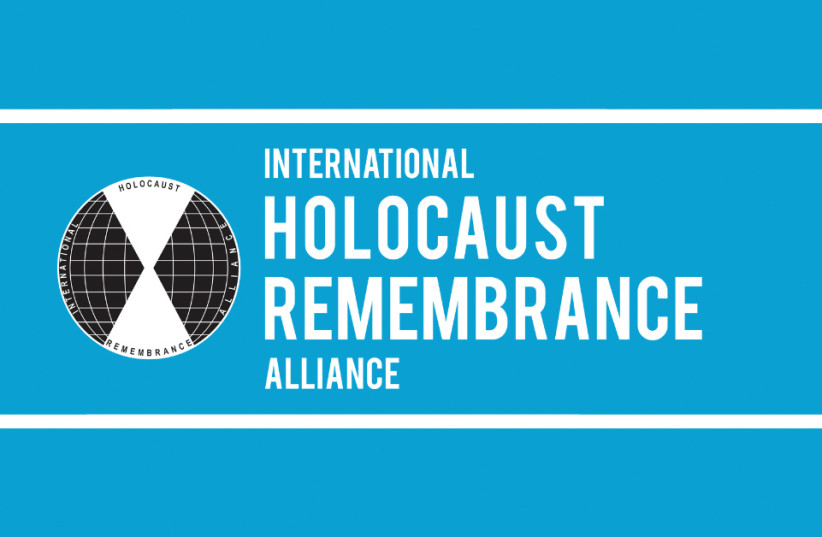There are 37 nations so far that have endorsed the IHRA working definition of antisemitism, with 200 entities adopting it in 2021.
A newly released study by the Combat Antisemitism Movement (CAM) and the Kantor Center for the Study of Contemporary European Jewry at Tel Aviv University shows that 865 entities around the world have adopted the International Holocaust Remembrance Alliance (IHRA) working definition of antisemitism since 2016.
An array of international organizations, national governments, municipalities, NGOs, universities, athletic clubs, corporations and other groups have adopted that definition as the guiding framework for their policies against antisemitism. The definition’s impact and influence are rooted in the mainstream consensus that has formed around it.
The non-legally binding definition, along with its 11 explanatory examples, was adopted unanimously by IHRA’s 31 member states in May 2016.
“It is clear that with the marked increase in antisemitism, especially in recent years, there is a need for a universally accepted definition of antisemitism,” said Sacha Roytman Dratwa, CEO of CAM. “We need to clearly delineate the borders of hate and incitement against Jews, because for too long it is the antisemites themselves who have defined them, and no other community would accept such a disturbing situation.

“I urge those who oppose this definition to study this list and learn how governments, business, civil society and faith communities of all backgrounds around the world have united in using the IHRA’s definition as a barometer for measuring and ultimately combating contemporary forms of antisemitism. At the same time, I urge allies of the Jewish community, institutional and at the grassroots level, to join this esteemed list by adopting the definition too.
“We see those who have already adopted the IHRA working definition of antisemitism as allies, and insist that Jews should be allowed to define hatred against us, as other communities do. This is the only definition endorsed by the overwhelming majority of Jews and Jewish communities worldwide.”
In 2021 alone, 200 entities adopted or endorsed the definition worldwide, 23.1% of the total since the definition’s inception. So far in 2022, 20 entities have adopted the definition as well.
“The spate of adoptions in 2021 demonstrates clearly that there is already a steady consensus building around the IHRA working definition of antisemitism, created by academics, experts and activists, so we hope more and more countries and entities will join this year,” said Prof. Dina Porat, founding head of the Kantor Center and academic adviser of Yad Vashem. “Without a universally accepted definition of antisemitism, the struggle against antisemitism is liable to be much more difficult to carry on.
“As the adoption of the Working Definition of Antisemitism progresses, it becomes a value-based statement, an affirmation of standing by those who combat antisemitism and other injustices. The definition provides assistance in various areas, such as identifying instances of antisemitism, instructing police, serving as supportive material in court, and encouraging discussions on fundamental issues in parliaments and universities before adoption takes place, which makes it a coercive tool, without being grounded in law.”
Most Western democracies have adopted the definition: 28 IHRA member states, four IHRA observer states, and five nations unaffiliated with the IHRA.
Following the adoption by nations such as the United States, Canada, Germany, the United Kingdom and France, the newest additions to this group in 2021 were Australia, Estonia, Guatemala, Poland, South Korea and Switzerland, followed by the Philippines in 2022.
Also 320 non-federal government entities – including regional, provincial, state, county, and municipal bodies – have adopted the definition, with 39 doing so in 2021 and 13 so far in 2022. In Europe, this has included major national capitals such as London, Paris, Berlin, Madrid and Vienna.
The analysis by CAM and the Kantor Center shows that when a country takes the step of adopting the IHRA Working Definition of Antisemitism at the national level, local authorities, organizations, and educational institutions follow suit.
For example, the United Kingdom was the first country to officially adopt the definition in December 2016, and by the end of 2021, most institutions of higher education and local authorities in the country had endorsed it as well. Australia adopted the definition in October, and numerous Australian towns, states, political parties, and NGOs have done the same since then.
The IHRA Working Definition of Antisemitism is increasingly a key pillar in government strategies in the struggle against all forms of contemporary antisemitism.
The growing pace of adoptions across all sectors and layers of society is expected to continue in the years ahead, elevating the definition’s status as the most widely accepted definition of Jew-hatred, with more and more entities turning to it as they seek to combat the global resurgence of the “world’s oldest hatred” in a meaningful and effective manner.
